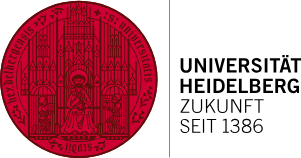Study Economics in Germany

Contents
Dreaming of a world-class education in a country known for its economic prowess? Germany offers you a chance to study economics at prestigious universities without breaking the bank!
If this interests you, you are in the right place. Germany welcomes international students, offering affordable education that allows you to pursue your academic dreams without financial strain. We’re here to guide you through your decision to study economics in Germany.
Int. Study Programs
Universities
Cities
Top Reasons to Study Economics in Germany
Here are five compelling reasons to study economics in Germany:
-
Tuition-Free Education:
Most public universities offer free undergraduate programs, and Master's programs are affordable, ensuring you graduate without debt. -
Globally Respected Degrees:
A degree from a German university is recognized worldwide, opening doors to lucrative careers in global markets. -
English-Taught Programs:
With numerous programs in English, you can pursue your studies without needing fluency in German. -
Strong Job Market:
Germany's thriving economy ensures ample job opportunities in industries like finance, policy-making, and consultancy. -
Cultural Diversity:
Experience life in a multicultural environment, gain international exposure, and develop a global network.
Economics Degrees in Germany: Which Path Is Right for You?
Economics degrees in Germany are available at various academic levels, providing options for students at different stages of their educational journey. These programs cover various topics, including economic theory, quantitative methods, and applied economics, preparing students for diverse career paths.
Bachelor’s Degree in Economics
A Bachelor’s degree in economics typically lasts three to four years and provides students with a strong foundation in the principles of economics. This degree is ideal for those just beginning their academic journey and lays the groundwork for advanced studies or professional roles.
Key Highlights:
- Core Topics: Microeconomics, macroeconomics, econometrics, and quantitative methods.
- Skills Acquired: Analytical thinking, data interpretation, and problem-solving in economic contexts.
- Opportunities Post-Graduation: Entry-level roles such as economic analyst, data analyst, or policy assistant in both private and public sectors.
Why Choose a Bachelor’s Degree in Germany?
- Tuition-free or low-cost education at public universities.
- A chance to study in a globally connected economy with numerous internship opportunities.
- English-taught programs, eliminating the need for proficiency in German for many courses.
Master’s Degree Degree in Economics
A Master’s in Economics in Germany is typically a two-year program designed for students aiming to specialize in specific areas of economics. These programs offer advanced coursework, research opportunities, and practical applications, making them ideal for career advancement or academic pursuits.
Specialization Areas:
- Financial Economics
- International Economics
- Economic Policy and Development
- Behavioral Economics
Key Highlights:
- Advanced Topics: Game theory, advanced econometrics, global trade, and public policy.
- Research Opportunities: Many Master’s programs include thesis work, allowing students to explore specific interests in depth.
- Career Pathways: Economists, financial consultants, market analysts, or roles in international organizations such as the European Central Bank.
Benefits of Pursuing a Master’s in Economics in Germany:
- Access to state-of-the-art research facilities and expert faculty.
- Networking opportunities with industry leaders and academic peers.
- A stepping stone to pursuing a Ph.D. or high-level professional roles.
Ph.D. Programs in Economics
A Ph.D. program in economics is perfect for those pursuing academic careers or advanced research roles. These programs are rigorous and focus on contributing original research to the field of economics. Ph.D. studies generally last 3 to 5 years and emphasize specialized training in analytical methods and economic theories.
Key Features:
- Research Focus: Original contributions to areas like economic policy, international trade, or behavioral economics.
- Skills Acquired: Advanced analytical thinking, complex problem-solving, and academic writing.
- Professional Pathways: Roles in academia, international organizations, think tanks, or senior policy advisory positions.
Why Pursue a Ph.D. in Economics in Germany?
- Germany’s universities are renowned for their cutting-edge research in economics.
- Many Ph.D. programs are funded, with scholarships or research stipends available.
- Collaboration opportunities with industry leaders and government institutions.
Affordable Economics Programs in Germany for Non-EU Students
Best Universities to Study Economics in Germany for International Students
Germany boasts numerous prestigious universities known for their excellent economics programs. Some of the best universities to study economics in Germany include:
- Ludwig Maximilian University of Munich (LMU)
- University of Mannheim
- Rheinische Friedrich-Wilhelms-University Bonn
- Humboldt University of Berlin
- Goethe University Frankfurt
- Free University of Berlin
For an in-depth understanding of what makes these universities stand out, we have created a comprehensive guide.
Jobs in Germany For Economics Graduates
Graduates with an economics degree from a German university have numerous career options. Here are some of the most sought-after roles for economics professionals in Germany:
Economic Analyst
- Role: Economic analysts research and interpret economic data to provide insights and forecasts. They analyze market trends, economic policies, and financial data to support decision-making processes.
- Opportunities in Germany: With Germany's strong economy and diverse industries, economic analysts are in high demand in both the private and public sectors, including financial institutions, government agencies, and international organizations.
Financial Consultant
- Role: Financial consultants advise clients on financial planning, investments, and risk management. They help organizations and individuals make informed financial decisions to achieve their financial goals.
- Opportunities in Germany: Germany’s thriving financial sector, including banks and insurance companies, provides numerous opportunities for financial consultants to work with a wide range of clients, from small businesses to multinational corporations.
Policy Advisor
- Role: Policy advisors analyze and develop economic policies and strategies. They work with government bodies, think tanks, and non-governmental organizations to shape and implement policies that address economic issues.
- Opportunities in Germany: Given Germany's influential role in the European Union and global economic policy, there is a strong demand for policy advisors who can contribute to shaping economic regulations and initiatives.
Investment Banker
- Role: Investment bankers assist companies and governments in raising capital by underwriting and issuing securities. They also provide advisory services for mergers, acquisitions, and other financial transactions.
- Opportunities in Germany: Germany's financial hubs, such as Frankfurt, offer a vibrant environment for investment bankers, with numerous opportunities in the banking and financial services sectors.
Related Fields for Economics Graduates
Related fields offer flexible and exciting opportunities for students who study economics in Germany but wish to explore alternative career paths. Here are some options:
Business Administration
Business administrators oversee operations, develop strategies, and drive organizational growth. Economics knowledge helps them make informed decisions about resource allocation and market positioning.
Finance
Finance professionals handle investments, financial planning, and asset management. Economics provides the foundation for understanding markets, predicting trends, and managing financial risks effectively.
International Relations
International relations experts focus on global trade, diplomacy, and international development. Economics plays a critical role in shaping trade policies, evaluating economic sanctions, and fostering cross-border collaborations.
Political Science
Political scientists analyze government systems and public policies, often with a focus on economic impacts. An economics background equips them to evaluate policy decisions and their influence on societies.
Public Policy
Public policy professionals design and implement programs that address economic and social challenges. Economics is instrumental in analyzing policy effectiveness and creating sustainable solutions.
Demand for Economics Graduates in Germany
Germany’s Growing Economy
Germany is the largest economy in Europe and a global leader in trade, finance, and innovation. Recent forecasts from the Institute for Economic Research predict a growth rate of 0.4% this year and 1.5% next year, fueled by reduced inflation and increased consumer spending.
This economic recovery has boosted demand for skilled economists. Businesses, government agencies, and international organizations need professionals who can analyze market trends, forecast changes, and guide decision-making in uncertain economic environments.
Economics Salary in Germany
Economists in Germany are well-compensated, with salaries reflecting the country's strong economy and demand for skilled professionals:
- Average Salary (2024): €52,762 annually (€4,397 monthly).
- Entry-Level Salary: €52,715 per year.
- Experienced Economists: Up to €57,242 annually.
Salaries vary by location and role:
- Highest Salaries by City:
- Hanover: €65,835/year
- Frankfurt: €61,000/year
- Highest Salaries by State:
- Baden-Württemberg: €61,621/year
Economists who gain professional experience, work in large companies, or advance into managerial roles can earn salaries upwards of €61,840 annually.
With an ever-growing community of international students from around the world, you will grow academically and socially, making lifelong friendships along the way. We hope this guide helps make your decision easier.
FAQ
What are the language requirements to study Economics in Germany?
The required language qualifications will vary depending on whether your chosen program is English or German.
If you choose to study a program in English, here's what you'll need for these programs:
- IELTS (International English Language Testing System)
- TOEFL (Test of English as a Foreign Language)
- Cambridge English Qualifications
If you are interested in studying Cybersecurity courses in German, here are the language requirements you will need to get admission:
- TestDaF (Test Deutsch als Fremdsprache)
- DSH (Deutsche Sprachprüfung für den Hochschulzugang)
- Goethe-Zertifikat
For more information on language requirements, please refer to the specific program you are interested in, as the requirements may vary slightly.
What are the visa requirements for Economics students?
If you're from the EU, EEA or Switzerland, you don't need a visa. But if you're from outside these regions, you'll need one. There are two types: the Student Applicant Visa for those who haven't been admitted to a university yet and the Student Visa for those who have.
To get your visa, first get accepted to a German university. Then make an appointment at your home country's German embassy or consulate. You'll need to prepare several documents: a completed visa application form, a valid passport, your university acceptance letter, proof of financial resources (such as a blocked account with approximately €11,904), proof of health insurance, academic records, a letter of motivation and proof of language proficiency.
Can international students work in Germany post-graduation?
At the end of your studies, you can apply for an 18-month Job Seeker Visa to look for a job that's a good fit for your qualifications. During this period, you can work in any job to support yourself while you search for a position related to your field of study.
You can then apply for either an EU Blue Card or a work permit once you've found a job that matches your qualifications. The EU Blue Card is a great option for high-skilled workers and offers benefits like a faster path to permanent residency. To qualify, you generally need a job offer with a minimum salary of around € 56,800 per year. If you don’t qualify for the Blue Card, you can apply for a regular residence permit for employment. This means you need to have a job offer that matches your degree.
After working in Germany for a certain amount of time (usually 33 months with an EU Blue Card or 21 months if you have good German language skills), you can apply for a permanent residence permit, which allows you to live and work in Germany indefinitely.
This might also be of interest to you

Study Cognitive Science in Germany
Are you fascinated by how the human mind works and how we can build intelligent systems that mimic human thinking? If you're passionate about areas...

Study Aviation Management in Germany: Top 6 Universities & 11 Programs
Dreaming of a career in the aviation industry? Whether you're passionate about air traffic, airline operations, airport management, or aviation...

Study Applied Data Science in Germany: 95 Study Programs in English
Are you fascinated by data and its power to shape the future? Do you dream of making data-driven decisions in fields like healthcare, neuroscience,...

Study American Studies in Germany: 62 Programs & Top 36 Universities
Are you fascinated by the United States, its literature, culture, politics, and global impact? If you dream of exploring North American society...

Study Applied Computer Science in Germany: 46 Study Programs in English
Are you passionate about technology, artificial intelligence, or software development? Dreaming of becoming a skilled software engineer or data...

Study Biomedical Engineering in Germany: Top 13 Universities & 18 Study Program
Are you fascinated by science, passionate about helping people, and curious about how technology can improve healthcare? If so, biomedical...

Best Student Cities in Germany for 2025
Germany is one of the top study destinations for international students, known for its high-quality education, vibrant culture, and affordable living...

How Expensive is Munich for Students? (Budget Guide 2025)
Munich is one of the most expensive cities in Germany, mainly because of high rent and living costs. However, with good financial planning, students...





